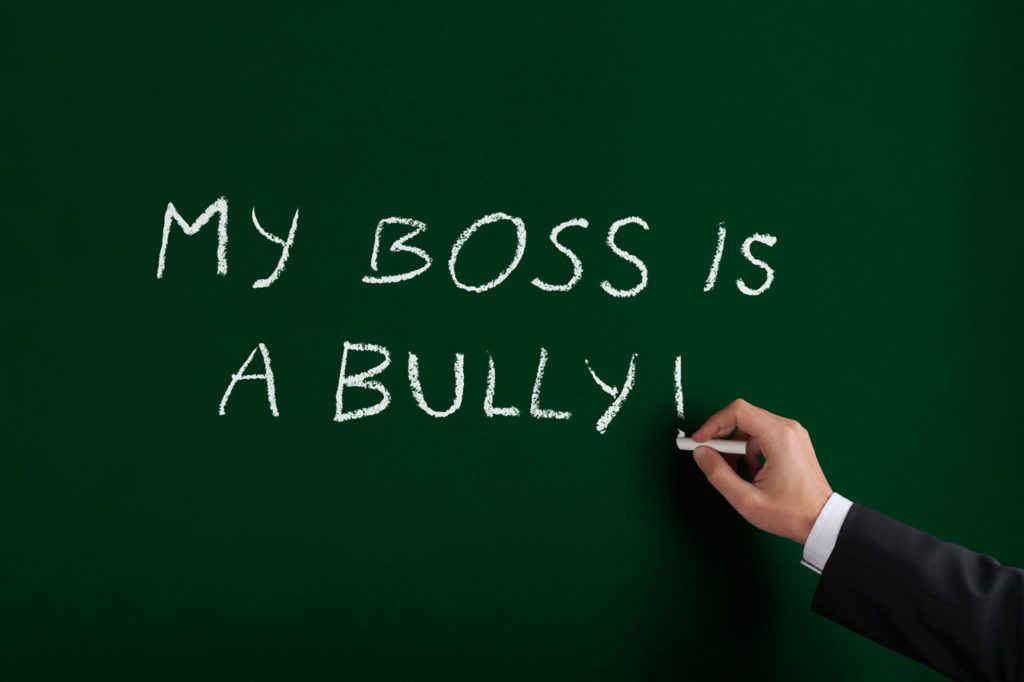
The topic of workplace bullying has received a lot of attention in recent years. Society recognises that bullying doesn’t end in the school yard and those same bullying behaviours can take place in the workplace too. Workplace bullying presents a serious threat to the health and well-being of workers both physically and mentally. It is therefore important to understand what is workplace bullying, how is it prevented and how to deal with workplace bullying.
What is workplace bullying?
Workplace bullying can be defined as repeated and unreasonable behaviour directed towards a worker or a group of workers that creates a risk to health and safety.
According to SafeWork NSW, examples of workplace bullying include:
- abusive, insulting or offensive language or comments
- unjustified criticism or complaints
- deliberately excluding someone from workplace activities
- withholding information that is vital for effective work performance
- setting unreasonable timelines or constantly changing deadlines
- setting tasks that are unreasonably below or beyond a person’s skill level
- denying access to information, consultation or resources to the detriment of the worker
- spreading misinformation or malicious rumours
- changing work arrangements, such as rosters and leave, to deliberately inconvenience a particular worker or workers.
Workplace bullying doesn’t have to occur during business hours either, any form of bullying by a co-worker or client through email, text message or social media could be regarded as workplace bullying.
It is important to note that not all behaviour which causes offence or makes a person feel upset at work is classified as workplace bullying. The law recognises that it is reasonable for management and supervisors to make decisions and set tasks in their management of a business and these actions, carried out in a reasonable manner should not be considered workplace bullying. For example, it is reasonable for management to provide feedback on a worker’s performance, set reasonable performance goals and deadlines and select or not select a worker for a promotion, if these things are done in a reasonable manner.
In addition, differences of opinion in the workplace are common and this does not constitute workplace bullying. However, where a single incident occurs, it is important that it is dealt with as soon as possible to prevent conflict from escalating and turning into workplace bullying.
Before labelling behavior as workplace bullying consider the following questions:
- Is it repeated?
- Is it unreasonable?
- Does the behaviour pose a risk to health and safety (including mental health)?
If the answer to the above questions is ‘yes’ then action should be taken as soon as possible.
How to deal with workplace bullying and prevent it
Workplace bullying can cause significant stress and harm. It is the responsibility of everyone in the workplace to prevent and resolve workplace bullying.
For victims:
If you are the victim of workplace bullying then it’s important to understand this is not acceptable. Speaking out sooner rather than later is key to resolving a situation before it gets out of hand. In the first instance if you feel able you should speak to the bully about their behaviour and let them know how it makes you feel. If this sounds a little scary then ask a supervisor or health and safety representative to assist you. Refer to your workplace bullying policy and the reporting procedures in place (if they exist) for more information on how to deal with the situation.
A victim of workplace bullying can also seek outside assistance from SafeWork NSW, the Fair Work Commission or a union representative. This may be particularly helpful if the bullying comes from senior management. It will also be helpful to seek independent legal advice and document details of the bullying.
For co-workers:
A witness to workplace bullying should never join or encourage the bully or even watch passively. Encourage the victim to report the bullying, provide support to your co-worker and speak up when someone’s behaviour is inappropriate. A workplace policy may even require you to report the bullying behaviour.
For bosses:
As a business owner, boss or manager it’s important to foster a supportive office culture where teamwork is valued. A bully often emerges when they feel intimidated or threatened and a competitive, ‘every man for himself’ environment can often encourage workplace bullying. Regular reviews will help you check on the wellbeing of employees and uncover any workplace bullying early on, while reports of bullying should be dealt with immediately and never ignored. It’s important to have procedures and structures in place to deal with bullying. These may include meeting with the victim and bully separately as well as ongoing monitoring of the situation.
What does the law say about workplace bullying?
Workplace bullying is covered under Work Health and Safety (WHS) laws. Under these laws every worker has the right to work in a safe environment free from safety and health risks. Health is defined as both physical and psychological, thus including the serious impact that workplace bullying can have on the mental health of an individual. These laws also provide recourse for victims of workplace bullying through workers’ compensation.
Under these laws business owners have a primary duty to provide and maintain a safe work environment for workers. A safe environment, among other things, is one that is free from workplace bullying. Business owners and management should implement certain steps to ensure workplace bullying is prevented and stopped should it occur. These may include implementation of a workplace bullying policy, regular consultation with workers to provide opportunity for review and feedback and establishment of clear communication lines.
Under WHS laws workers must also take reasonable care that their behavior does not adversely affect the health and safety of other people. They should comply with any rules and procedures that a company sets in place to prevent and resolve workplace bullying.
Are you a victim of workplace bullying?
Workplace bullying is a serious issue, it is against the law and it is never ok. If you are the target of workplace bullying, then it is important you speak out, or seek assistance.
Short and long term effects of bullying may include:
- depression
- anxiety
- panic attacks
- physical illness like headaches and digestive problems
- low self esteem
- some workplace bullying cases may lead to suicidal thoughts
If you have been the victim of workplace bullying resulting in mental or physical illness then you may be entitled to compensation. When bullying has taken place over long periods a victim may not even recognise that they are dealing with workplace bullying so it is always important to chat to an objective source if in doubt.
Victims of bullying may also seek anti-bullying orders at the Fair Work Commission. These orders are directed towards improving the work environment, and cannot involve monetary compensation.
At Taylor & Scott we understand that bullying is an emotional and complex issue which requires delicate handling and support. As compensation experts, we have assisted many Australians who have suffered both physically and mentally as a direct result of workplace bullying. We can offer advice and assistance for your particular situation during a free case assessment – contact us today.
At Taylor & Scott “We Care For You”.



